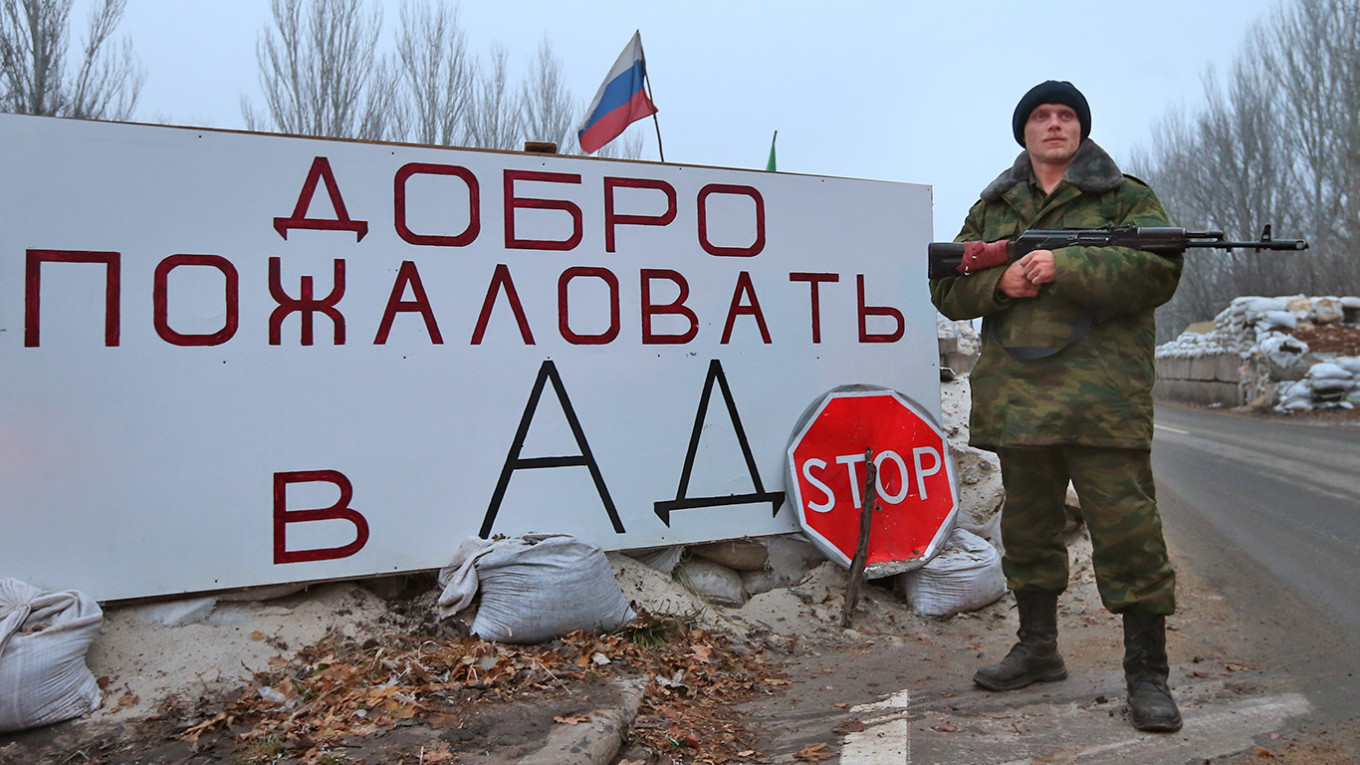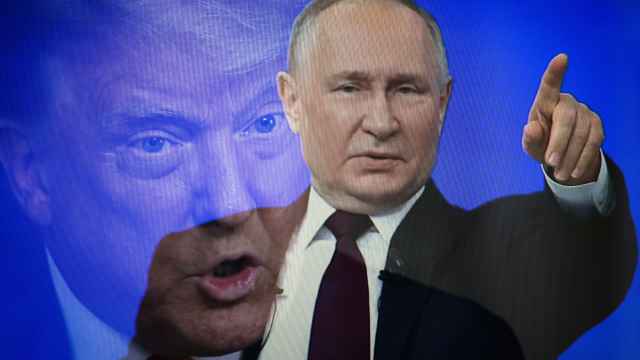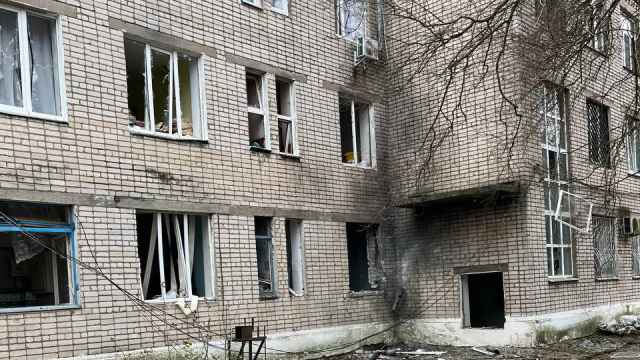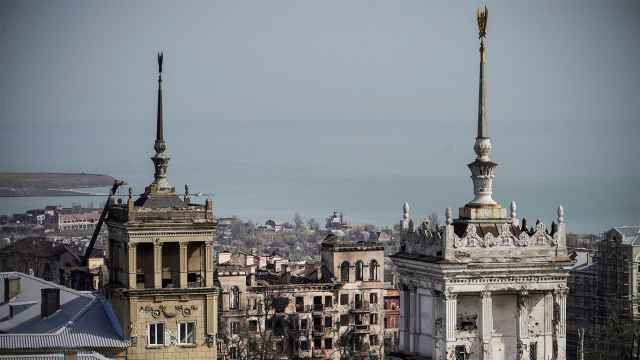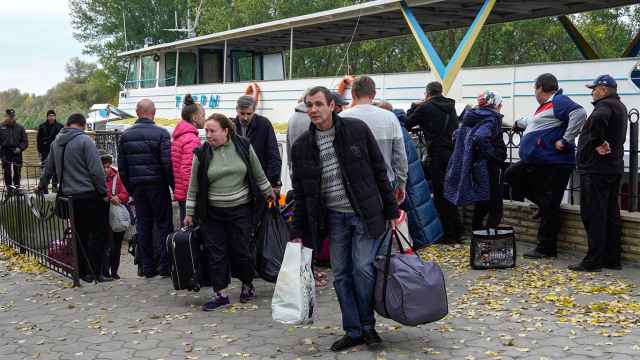The former mayor of Kupyansk, Ukraine, who surrendered his city to invading Russian forces in February 2022, died Tuesday night after being shot near his safe house in western Russia over the weekend.
Gennady Matsegora is the latest of over a dozen collaborationist or Kremlin-installed officials in occupied Ukraine to have been killed or injured in targeted attacks.
The majority of those targeted by saboteurs were attacked in the early months of the war, just before the Ukrainian counteroffensive of late 2022.
Before the full-scale invasion, most of the individuals killed were armed actors, such as Alexei Mozgovoy, a commander of Russia-backed separatist forces in Luhansk; Mikhail Tolstykh, another separatist commander in Donetsk; separatist commander Arsen Pavlov, known by his call sign “Motorola;” and Alexander Zakharchenko, the leader of the Donetsk People’s Republic.
The invasion appears to have prompted pro-Ukrainian saboteurs to shift their tactics to focus on destabilizing the new Kremlin-installed political infrastructure in occupied territories.
Here is a look at some of the assassinations or attempted killings that have taken place since the start of the full-scale war:
March 2022
March 2: Kreminna city head Volodymyr Struk’s body was discovered in Zhytlivka, Luhansk region after he was kidnapped from his home by camouflaged men. Former Ukrainian Deputy Interior Minister Anton Gerashchenko said that Struk was killed by unknown “patriots” as a traitor under martial law.
Struk was known as a politician with pro-Russian views who operated predominantly in his native Luhansk region. He joined the Opposition Platform – For Life, which catered to Ukraine’s pro-Russian electorate following the 2014 ousting of President Viktor Yanukovych.
He was elected mayor of Kreminna in 2020 despite his open support for the creation of the self-proclaimed Luhansk People’s Republic and alleged cooperation with Russian-backed combatants in the region. According to journalist Andrii Dikhtiarenko, Struk’s election win followed years of calculated moves to cultivate influence and become part of Kreminna’s establishment.
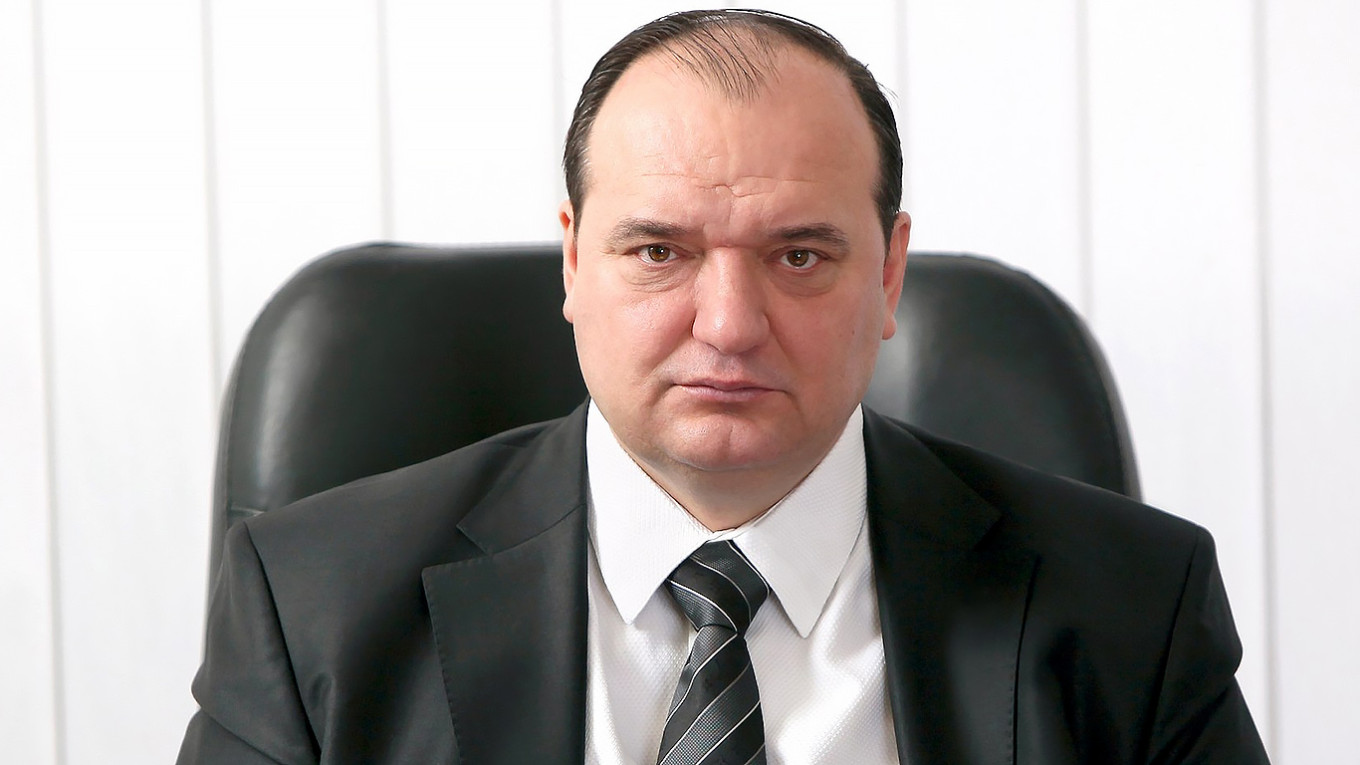
March 20: Pavel Slobodchikov, an aide to Russian-installed Kherson region head Vladimir Saldo, was shot dead in his Mercedes SUV. His wife, who was with him at the time of the attack, survived.
Slobodchikov was a Kherson politician both before and after Russia’s invasion and occupation of the city. According to the pro-Kremlin Novorossiya news outlet, he had been a member of the Salvation Committee for Peace and Order, a collaborationist administrative super-structure established after Russian forces captured most of the Kherson region and the city itself.
May 2022
May 22: Andrii Shevchyk, the Russian-installed head of the southern Ukrainian city of Enerhodar, was seriously wounded in an explosion.
Shevchyk was born in Russia and moved to Ukraine in the 1990s. He entered Enerhodar politics in the 2010s and joined the Opposition Platform – For Life in 2020. In spring 2022, he declared himself the new head of Enerhodar and established a new pro-Moscow local authority.
Just before his assassination attempt, Shevchyk ordered the mandatory transfer of property and grain from local enterprises to Russia, resulting in the seizure and illegal export of nearly 140,000 tons of grain into Russian ports.
Shevchyk is wanted in Ukraine on charges of treason.
June 2022
June 18: Yevhen Sobolev, then the head of Northern Correctional Colony No. 90 in Kherson, one of Ukraine’s largest prisons, was severely wounded when a bomb attached to a tree by unknown individuals went off as he was driving by in his Audi. Sobolev survived but underwent surgery for severe leg injuries.
According to the New Voice media outlet, Sobolev stayed in the city when Russia invaded and turned his penal colony into a makeshift base, permitting Russian soldiers to receive medical treatment and rest at the facility and allowing the army to build a food warehouse there.
In May 2022, Sobolev was suspected in absentia of high treason. The Ukrainian Prosecutor General accuses him of using the penal colony’s prisoners as slave labor, either by forcing them to repair Russian military equipment or facilitating the import and spread of Russian goods throughout the Kherson region.
In 2023, he was accused of facilitating the deportation of more than 1,700 Ukrainian prisoners into Russia. Many of these prisoners remain in Russia.
Sobolev has largely disappeared from the public eye since the assassination attempt but continues to face new convictions and charges for treason as recently as February 2024.
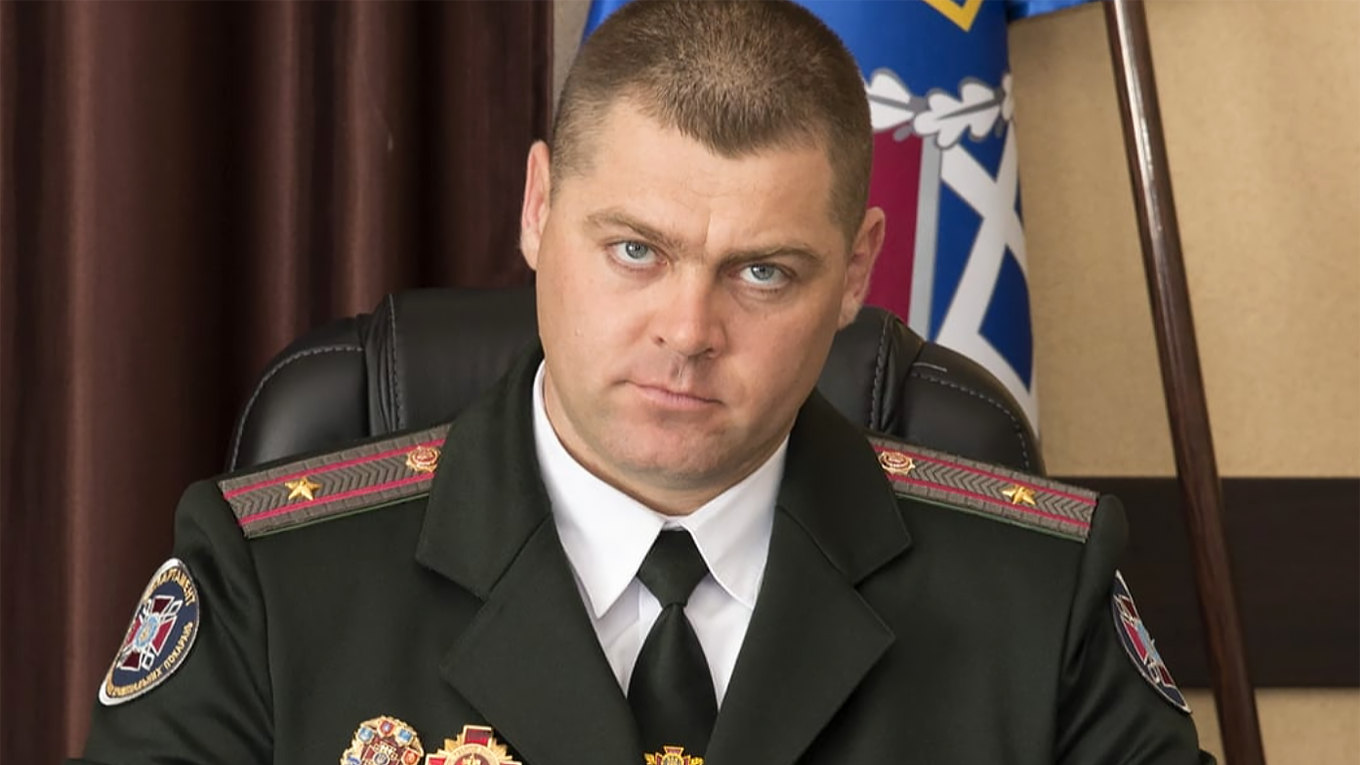
June 24: Dmitro Savluchenko, a prominent pro-Russian activist in the Kherson region, was killed in a car bombing.
According to IPC-Pivden, Savluchenko moved to Moscow following the 2014 Revolution of Dignity but returned to Kherson in 2016. He became a correspondent for Nash, a now-banned pro-Kremlin TV channel owned by media manager Yehveniy Murayev.
According to Evocation.info, a database of individuals who collaborate with the Russian authorities and support the war, following the Russian occupation, Savluchenko helped found the Salvation Committee for Peace and Order. He was then appointed head of the regional family, youth and sports department.
July 2022
July 10-11: Andrey Siguta, the acting head of the Russian-installed administration of the Melitopol district in southeastern Ukraine, survived an assassination attempt by an unknown individual. The Russian state-run RIA Novosti news agency reported that his attacker was shot while occupying authorities attempted to detain him.
Siguta was elected to the Melitopol District Council from the Opposition Platform – For Life party in 2020. After the Russian invasion, he was appointed head of the Moscow-installed Melitopol district administration. According to the U.S. State Department, Siguta has been involved in overseeing the theft of Ukrainian grain. He has been under Western sanctions since late 2022.
Siguta is accused of treason in Ukraine. The authorities claim that Siguta acted as an informant to the Russian authorities, identifying the positions of Ukrainian military personnel and military equipment and encouraging residents to do the same.
He remains active on his Telegram channel, posting updates on infrastructure repairs, singing Russia's praises and cheering for Putin.
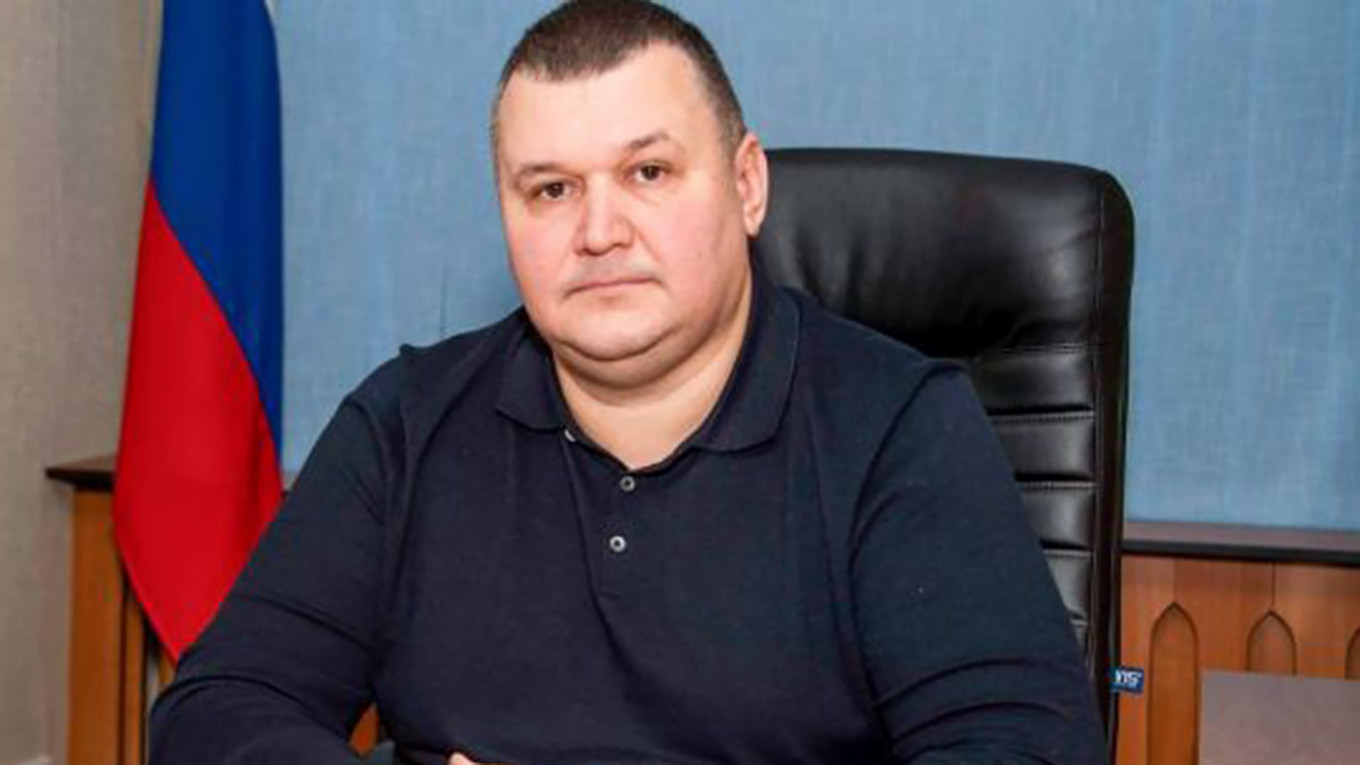
August 2022
Aug. 12: Oleg Shostak, head of public relations for the Moscow-installed Zaporizhzhia regional administration, was seriously wounded in a car bombing near a sports club in Melitopol. Following the bombing, Melitopol’s Ukrainian Mayor Ivan Fedorov joked that Shostak “definitely won't be able to sit properly — the part of his body used for sitting has literally been blown up.”
Before the full-scale invasion, Shostak was involved in local politics and headed the private TV channel TRK MTV-Plus, owned by Yevgeny Balitsky, another collaborator. Balitsky would later admit that Russia was forcibly deporting Ukrainians from occupied territories.
In 2016, Shostak, alongside deputies from the pro-Russian Opposition Bloc, attempted to take over the city-owned Melitopol TV channel. He reportedly only left the premises after someone poured feces on him from a bucket.
During the Russian invasion, he headed the local United Russia party headquarters during the widely disputed September 2022 annexation referendums in the occupied territories.
Aug. 20: Konstantin Ivashchenko, the Russian-installed mayor of Mariupol, survived an assassination attempt after an explosive device detonated as he made his way toward the Mariupol Zoo.
Ivashchenko was appointed as mayor during the Russian siege of the city in April 2022 and has been sanctioned by multiple countries since 2023. Petro Andryushchenko, an advisor to Mariupol’s exiled Ukrainian mayor, claimed that Ivashchenko took part in clearing the city of corpses in preparation for the May 9 Russian military parade.
Ivashchenko studied at a military engineering school in Russia and returned to Ukraine shortly after. He managed local factories including Azovmash, Ukraine’s largest machine-building enterprise, before entering local politics in the 2010s, running with various pro-Russian parties.
According to Andryushchenko’s sources, Ivashchenko died in February 2023 from unrelated causes. Russian authorities have not yet corroborated this claim.
Aug. 28: Oleksii Kovalov, a Russian-appointed deputy agriculture chairman in the Kherson region, was shot dead at his home in Zaliznyi Port. His wife was also wounded, and later reportedly died in the hospital. Kovalev, a former people’s deputy of Ukraine from President Volodymyr Zelensky's Servant of the People party, had survived another car bombing in June 2022.
Other prominent figures killed or wounded:
Kirill Stremousov: The vocal deputy head of the Russian-installed Kherson region administration died in a car crash in November 2022, just before Russia retreated from the city of Kherson.
Ivan Sushko: The Russian-appointed head of Mykhailivka village, Zaporizhzhia region, died from his injuries in a car bombing in August 2022. According to Ukrainian authorities, he had run for local council in 2015 as a candidate from the Opposition Bloc party.
Igor Telegin: The deputy head of domestic policy for Kherson survived a remote-controlled explosive attack in August 2022. Following his recovery, he focused on forming a youth organization which he described as: “the foundation for patriotic education of our youth, whose minds have been manipulated for 30 years to believe we are victims of repression, famine, etc.”
Vladimir Saldo: The Moscow-appointed head of the Kherson region was allegedly poisoned in August 2022. He returned to his duties in September of that year.
A Message from The Moscow Times:
Dear readers,
We are facing unprecedented challenges. Russia's Prosecutor General's Office has designated The Moscow Times as an "undesirable" organization, criminalizing our work and putting our staff at risk of prosecution. This follows our earlier unjust labeling as a "foreign agent."
These actions are direct attempts to silence independent journalism in Russia. The authorities claim our work "discredits the decisions of the Russian leadership." We see things differently: we strive to provide accurate, unbiased reporting on Russia.
We, the journalists of The Moscow Times, refuse to be silenced. But to continue our work, we need your help.
Your support, no matter how small, makes a world of difference. If you can, please support us monthly starting from just $2. It's quick to set up, and every contribution makes a significant impact.
By supporting The Moscow Times, you're defending open, independent journalism in the face of repression. Thank you for standing with us.
Remind me later.



